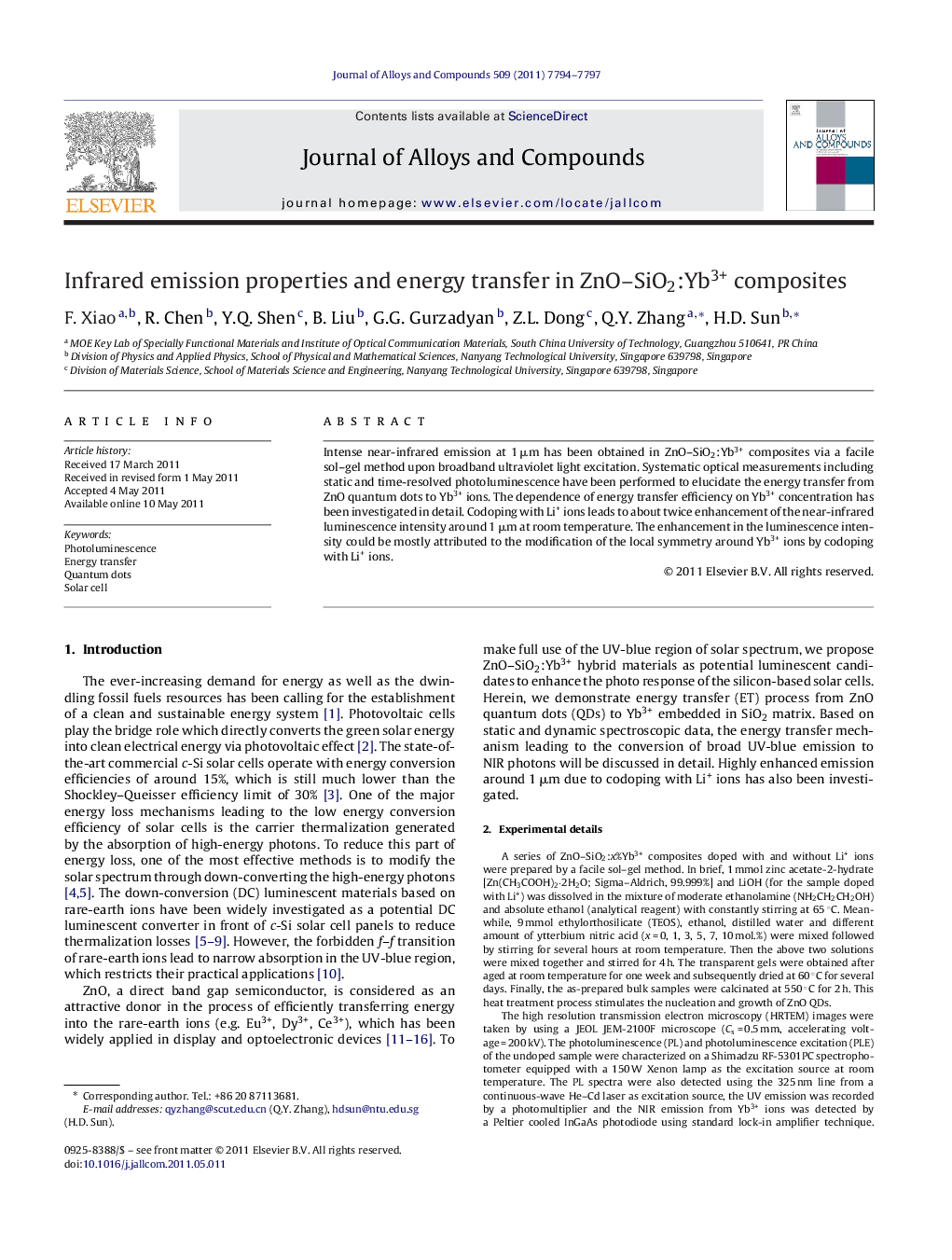| Article ID | Journal | Published Year | Pages | File Type |
|---|---|---|---|---|
| 1617319 | Journal of Alloys and Compounds | 2011 | 4 Pages |
Intense near-infrared emission at 1 μm has been obtained in ZnO–SiO2:Yb3+ composites via a facile sol–gel method upon broadband ultraviolet light excitation. Systematic optical measurements including static and time-resolved photoluminescence have been performed to elucidate the energy transfer from ZnO quantum dots to Yb3+ ions. The dependence of energy transfer efficiency on Yb3+ concentration has been investigated in detail. Codoping with Li+ ions leads to about twice enhancement of the near-infrared luminescence intensity around 1 μm at room temperature. The enhancement in the luminescence intensity could be mostly attributed to the modification of the local symmetry around Yb3+ ions by codoping with Li+ ions.
Graphical abstractFigure optionsDownload full-size imageDownload as PowerPoint slideHighlights► ZnO–SiO2:Yb3+ composites have been prepared via a facile sol–gel method. Intense near-infrared emission at around 1 μm has been obtained upon broadband ultraviolet light excitation. ► Efficient energy transfer from ZnO quantum dots to Yb3+ ions has been clarified by the systematic measurements and analysis of static and time resolved photoluminescence spectra. ► Codoping with Li+ ions leads to about twice enhancement of the near-infrared luminescence intensity around 1 μm at room temperature.
